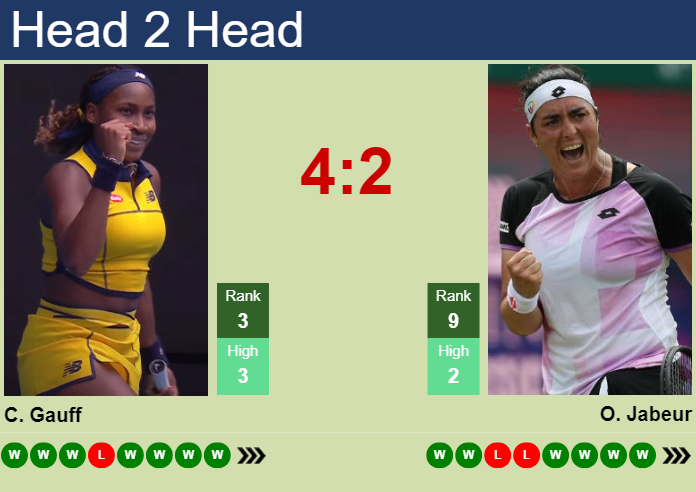Alright, let’s dive into this gauff vs jabeur prediction thing. I’m no pro gambler, but I like to mess around with data and see what I can dig up. So, I figured, why not try and predict this match? Here’s how I went about it.

First, I started gathering data. I mean, you can’t just guess, right? I scraped match history, win/loss records on different surfaces (clay, hard, grass), and head-to-head stats. I mainly focused on their recent performances – like, the last six months or so – because players change so much over time.
Next, I dug into the details. I looked at things like:
- Serve percentage – how often they get their first serve in.
- Break point conversion – how good they are at capitalizing on break points.
- Unforced errors – how often they mess up without being pressured.
These numbers can tell you a lot about a player’s consistency and mental game.
Then, I tried to factor in the mental aspect. This is the tricky part. You can’t really quantify “grit” or “confidence,” but you can look for clues. Have they been winning tight matches lately? Do they seem to thrive under pressure? I tried to get a feel for their current mental state based on interviews and match reports.
After that, I built a super simple model. I just assigned weights to each factor (win rate, serve percentage, etc.) based on how important I thought they were. This is where things get subjective. My weights might be totally different from someone else’s, but that’s part of the fun.
I ran the numbers. The model spit out a probability for each player winning. It wasn’t anything fancy, just a basic way to combine all the data into a single prediction.
Finally, I compared my prediction to the betting odds. This is where I checked myself. If my model predicted Gauff was a huge favorite, but the odds were close, I knew I needed to re-examine my assumptions. The betting market is usually pretty efficient, so it’s a good reality check.
The outcome? Well, I’m not going to tell you who I picked to win (mostly because I don’t want to be responsible if you lose money!). The point is, I went through the process of collecting data, analyzing it, and trying to make an informed prediction. Whether I was right or wrong, I learned something along the way.

Did I make money? Nah, I didn’t bet much. This was more about the process than the profit. But hey, if I had put down a few bucks and won, that would have been a nice bonus!












